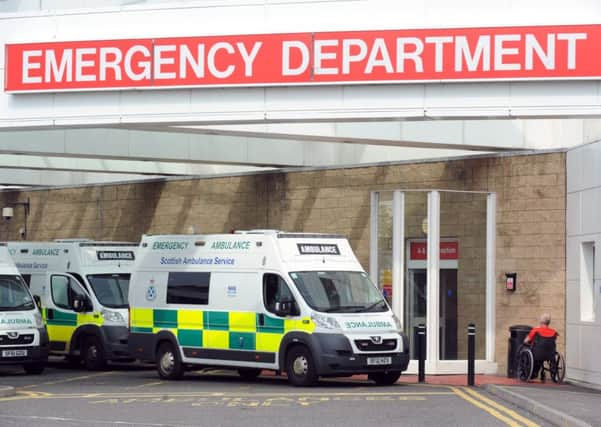NHS needs help, not ideological firewalls – leader comment


Despite the UK Government insisting that the NHS “is not, and never will be, for sale to the private sector” – a pledge that is about as clear as it can be and therefore would be politically difficult to later abandon – the SNP now plans to introduce an “NHS Protection Bill” in the next parliament to prevent the health service from falling into the hands of allegedly nefarious American corporations following a post-Brexit trade deal with the US.
Nicola Sturgeon’s “hands off our NHS” policy is designed to grab the headlines and also to widen the perceived political gap between Scotland and England – the subtext is that Scotland wants to maintain the health service’s original ethos, while those south of the border are more willing to sup with capitalist financiers. This will strike many on the left as a reasonable approach and, indeed, it would be if everything was rosy in the NHS garden. The problem is it most definitely is not.
Advertisement
Hide AdAdvertisement
Hide AdThe breaching of waiting time targets has become a regular occurence, getting to see the family GP has become increasingly difficult with some patients waiting for weeks or forced to phone up every morning in the off-chance of a cancellation, and spiralling numbers of unfilled vacancies have added to pressures on hard-working and dedicated medical staff.
And it’s not just the Scotsman that is concerned. Far from it. Last month, Audit Scotland warned that NHS performance “continues to decline, while demands on the service from Scotland’s ageing population are growing” and added that Scotland’s health service was “not financially sustainable”. In August, BMA Scotland said the current problems could not continue indefinitely “without increasing risk and adverse consequences for patients”. And in May, the union Unison reported that the ambulance service was in a “critical condition” with staff “struggling to deal with the demands placed upon them”.
In such a situation, politicians who really care about the NHS should urgently be looking for the best way to solve its problems, not setting up ideological firewalls. Even in the unlikely event that private firms are entirely unable to help, it should not be actually illegal for governments to explore the potential.
The fear is the SNP is playing politics with the health service, while also shying away from politically difficult but necessary decisions for fear of damaging support for its main aim: independence.
